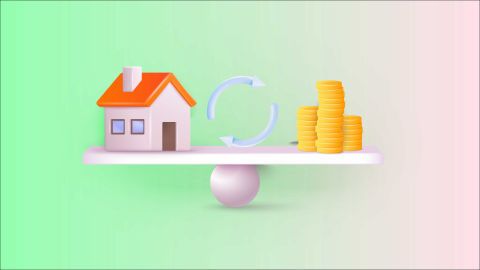Choosing the right home loan does not stop at finding the best interest rates or favourable terms. It also involves the key decision of choosing between fixed and floating interest rates, which can impact the overall home buying cost.
While both have their own advantages, you will have to evaluate your financial goals, risk tolerance, and market conditions to find what fits best. A fixed interest rate means the rate will remain the same for your entire loan term. A floating interest rate, also known as a variable interest rate, is where the rate changes based on market conditions, for instance, a change in the repo rate.
Is a floating interest rate better?
A floating interest rate may be a good option if you are willing to take a little more risk to get better interest rates. This type of interest rate may fluctuate as per the market conditions. If repo rates decrease, so will your interest rates and the repayment amount. More often, home loans with floating interest rates offer lower interest rates and better terms.
One of the downsides of a floating interest rate is the possibility of rates rising during difficult market conditions.
Is a fixed interest rate a good option?
A fixed interest rate is a good option if you prefer a fixed repayment amount for your loan term duration. This means that you can budget well and not be affected by market fluctuations. Knowing that your repayments would not unexpectedly increase offers peace of mind. In the current market, only a handful of institutions offer fixed interest for a specific tenure of like two years or so. Then the rates get revised.
A home loan with fixed interest rates might have higher interest rates. The lender usually offers high rates to mitigate the risks of changing market scenarios.
Choosing the type of interest rate for yourself
If you prefer certainty and stability with your repayments, a fixed interest rate may be for you. But, if you are willing to take on a little risk in the hope of saving money in the long run, a floating interest rate may be more appropriate.
It is also important to consider the current market conditions and trends when making your decision. For instance, if interest rates are at historic lows, you may want to consider a fixed interest rate to lock in the low rate. It is recommended you research, compare home loan interest rates and fees, and seek professional financial advice before making any significant financial decisions.




